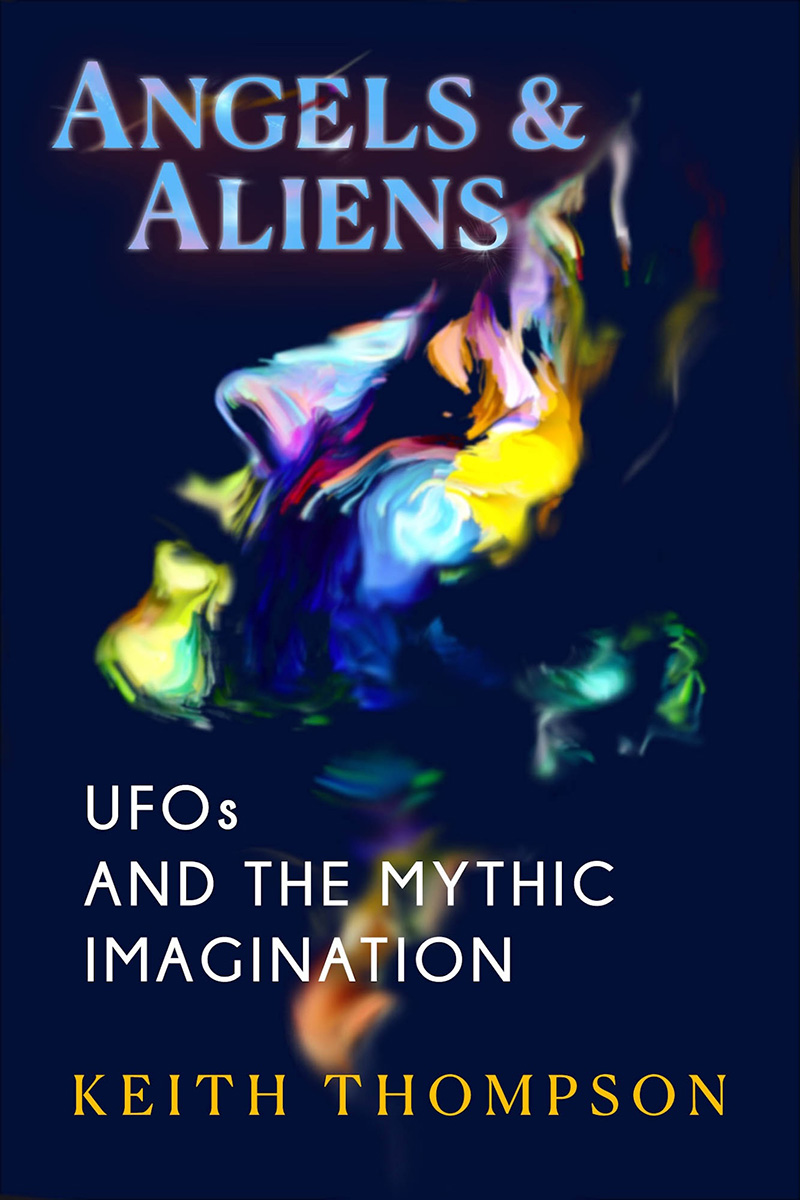REVISITING Angels and Aliens after more than three decades, I find myself reflecting on the youthful curiosity that first drew me to ponder UFOs as portals to a reality that’s neither acknowledged on our maps nor yet assimilated by our minds. My adventures with this subject began with a classroom report I gave at age twelve, introducing me to the exhilaration of approaching the unknown with a zeal to understand new things.
Angels and Aliens became a vessel for undiluted inquisitiveness, a place where science wasn’t just about settled facts but about questioning, imagining, and daring to explore beyond accepted boundaries. The debates within these pages weren’t just intellectual exercises; they were fodder for a restless mind eager to probe uncharted zones that flourish outside established concepts and theorems. I approached the UFO not just as an anomaly but as an invitation to consider a different relationship between mind and matter; a new physics and psychology of dimensionality.
Looking back, I wasn’t discouraged as the field’s successive investigatory efforts failed to steer UFOs into any single conceptual corral; to the contrary. Stymied attempts to cuff the phenomenon and haul it into court only confirmed the need for a larger interpretive framework: one where the symbolic and physical dimensions are viewed as complementary, reciprocal, each entailing the other. The imperative to choose between false opposites had led to dead ends for decades; it no longer rang true, including for many UFO experiencers. When it became clear that Gregory Bateson’s idea to pursue “patterns which connect” was over the target, that became my focus.
Returning to the book has brought welcome reunion with old and dear friends: Proteus, intrepid shape-shifter; Hermes, audacious guardian of thresholds and herald of mixed meanings; and Sisyphus, who, through my eyes, transformed his eternal toil into a vocation of profound significance. These mythic figures challenge us to continuously reevaluate what we believe we know. Their guidance is seldom limited to polite requests. “There is no place at all that does not see you,” the poet Rilke concluded from his encounter with Apollo. “You must change your life.”
In this new edition, the original text remains largely unrevised, preserving the integrity of the arguments and episodes I chronicled. Minor grammatical and syntactical tweaks have been applied to enhance clarity.
The breadth of readers who’ve engaged with this book — from scholars to dreamers, from those rooted in ancient myths to those exploring modern existential concerns — has woven an enduring and deeply personal tapestry of insight and empathy. I still think of the young student who wrote to me about how Angels and Aliens had inspired a school project on possible life in other galaxies or dimensions. She spoke of how it empowered her to interrogate authority, not in a defiant way, but with curiosity that led her to excel in her studies, finding power in the pursuit of knowledge.
I’ve not forgotten the elderly Vietnam War veteran who told me that reading Angels and Aliens brought him profound peace. He had seen things in the sky during his service that he could never account for, and the societal dismissal of his accounts left him feeling unseen. My book, he said, affirmed his experiences, offering a balm to decades-old wounds of disbelief and isolation.
I was invited to a family gathering where they told me Angels and Aliens was a tradition read aloud during their annual wilderness trips. Each year, they added their own interpretations and stories, turning the book into an inspiring ritual that bonded them, creating a legacy of shared laughter and wonder. And they stayed up late skywatching, sharing dreams each morning.
A scalding critique came from an astronomer who felt my book was irresponsible, potentially promoting misinformation. While initially discouraging, his letter led to a constructive dialogue where we both learned from each other’s viewpoint. The anger was a stimulus for a deeper understanding, transforming into reciprocal respect.
There was a stunning encounter with a silent reader at a book signing who simply nodded yes when I asked if he had read the book. I quickly learned from his friend that he was a mute individual who found solace and a voice through exploring otherworldly concepts. Our shared silence was a poignant reminder of how books can touch lives in ways we might never expect.
But no message touched more than the one from a reader whose partner was in hospice. She said they spent his last days reading Angels and Aliens together, discussing the mysteries of life and beyond. She wrote that it was their last shared adventure, and thanked me for giving them one last meaningful conversation.
This global exchange has shown me that the quest to understand this enduring enigma is, at its core, a quest to understand ourselves and the stories we tell to make sense of it all. And it’s not just about looking back; it’s about seeing how those early seeds of thought keep sprouting. Having lived through countless cycles of skepticism and belief, witnessing the ebb and flow of public interest in UFOs, I can say if I were to start again from scratch, I would write this book emphasizing the same broad themes. Amazing to say, the book feels new.
Angels and Aliens was born of wrestling with questions that call to us, sometimes by name, frequently late at night when sleep falters and attention aches. What is out there, and what is its relation to the very depths of our being? More than ever, I see such questions as companions on a lifelong quest. Here’s to new, beautiful, not yet imagined ways of asking: What’s going on here?

